afterLoad (456.16KB) (2.33ms)
afterInitialise (1.27MB) (42.34ms)
afterRoute (840.45KB) (19.67ms)
beforeRenderComponent com_tags (20.62KB) (264μs)
afterRenderComponent com_tags (1.81MB) (136ms)
afterDispatch (27.47KB) (9.59ms)
beforeRenderRawModule mod_articles_category (READ MORE...) (423.86KB) (13.64ms)
Before Access::preloadComponents (all components) (50.9KB) (1.91ms)
After Access::preloadComponents (all components) (103.05KB) (3.01ms)
Before Access::getAssetRules (id:8 name:com_content) (840B) (19μs)
After Access::getAssetRules (id:8 name:com_content) (7.05KB) (41μs)
afterRenderRawModule mod_articles_category (READ MORE...) (3.73KB) (129ms)
beforeRenderRawModule mod_custom (BOOST YOUR IMMUNE DEFENSE) (6.45KB) (28μs)
afterRenderRawModule mod_custom (BOOST YOUR IMMUNE DEFENSE) (3.8KB) (1.44ms)
beforeRenderRawModule mod_tags_popular (Search) (2.36KB) (22μs)
afterRenderRawModule mod_tags_popular (Search) (17.72KB) (138ms)
beforeRenderRawModule mod_custom (Get additionel and more detailed knowledge ) (816B) (27μs)
afterRenderRawModule mod_custom (Get additionel and more detailed knowledge ) (1.55KB) (43μs)
beforeRenderRawModule mod_custom (Overview of vitamins, minerals, and essential fatty acids) (768B) (11μs)
afterRenderRawModule mod_custom (Overview of vitamins, minerals, and essential fatty acids) (960B) (23μs)
beforeRenderRawModule mod_custom (Q10 goes by many names) (608B) (9μs)
afterRenderRawModule mod_custom (Q10 goes by many names) (928B) (18μs)
beforeRenderRawModule mod_custom (Check this before you buy a Q10 product) (752B) (9μs)
afterRenderRawModule mod_custom (Check this before you buy a Q10 product) (944B) (19μs)
beforeRenderRawModule mod_custom (Are you taking supplements) (736B) (8μs)
afterRenderRawModule mod_custom (Are you taking supplements) (1.03KB) (18μs)
beforeRenderRawModule mod_custom (Weight loss that works) (736B) (9μs)
afterRenderRawModule mod_custom (Weight loss that works) (1.03KB) (17μs)
beforeRenderRawModule mod_custom (Antiaging) (720B) (9μs)
afterRenderRawModule mod_custom (Antiaging) (912B) (16μs)
beforeRenderRawModule mod_menu (Are you getting enough vitamins and minerals?) (2.5KB) (12μs)
afterRenderRawModule mod_menu (Are you getting enough vitamins and minerals?) (22.39KB) (2.77ms)
beforeRenderRawModule mod_menu (The key to increased well-being) (736B) (23μs)
afterRenderRawModule mod_menu (The key to increased well-being) (17.83KB) (1.6ms)
beforeRenderRawModule mod_menu (Did you know.....) (720B) (24μs)
afterRenderRawModule mod_menu (Did you know.....) (25.52KB) (359μs)
beforeRenderRawModule mod_custom (Useful Links) (1.06KB) (19μs)
afterRenderRawModule mod_custom (Useful Links) (1.02KB) (33μs)
beforeRenderRawModule mod_custom (Chronic fatigue tied Alan to his bed but Q10 capsules saved him:) (244.28KB) (6.05ms)
afterRenderRawModule mod_custom (Chronic fatigue tied Alan to his bed but Q10 capsules saved him:) (1.06KB) (41μs)
beforeRenderModule mod_custom (Chronic fatigue tied Alan to his bed but Q10 capsules saved him:) (768B) (4μs)
afterRenderModule mod_custom (Chronic fatigue tied Alan to his bed but Q10 capsules saved him:) (1.3KB) (70μs)
beforeRenderRawModule mod_custom (Cholesterol-lowering without side effects:) (368B) (13μs)
afterRenderRawModule mod_custom (Cholesterol-lowering without side effects:) (1.06KB) (23μs)
beforeRenderModule mod_custom (Cholesterol-lowering without side effects:) (752B) (2μs)
afterRenderModule mod_custom (Cholesterol-lowering without side effects:) (1.28KB) (31μs)
beforeRenderModule mod_articles_category (READ MORE...) (20.82KB) (2.3ms)
afterRenderModule mod_articles_category (READ MORE...) (1.25KB) (62μs)
beforeRenderModule mod_custom (BOOST YOUR IMMUNE DEFENSE) (6.81KB) (15μs)
afterRenderModule mod_custom (BOOST YOUR IMMUNE DEFENSE) (1.28KB) (28μs)
beforeRenderModule mod_tags_popular (Search) (1.98KB) (13μs)
afterRenderModule mod_tags_popular (Search) (1.27KB) (23μs)
beforeRenderModule mod_custom (Get additionel and more detailed knowledge ) (1.17KB) (10μs)
afterRenderModule mod_custom (Get additionel and more detailed knowledge ) (1.3KB) (22μs)
beforeRenderModule mod_custom (Overview of vitamins, minerals, and essential fatty acids) (384B) (9μs)
afterRenderModule mod_custom (Overview of vitamins, minerals, and essential fatty acids) (1.31KB) (22μs)
beforeRenderModule mod_custom (Q10 goes by many names) (208B) (9μs)
afterRenderModule mod_custom (Q10 goes by many names) (1.27KB) (22μs)
beforeRenderModule mod_custom (Check this before you buy a Q10 product) (352B) (9μs)
afterRenderModule mod_custom (Check this before you buy a Q10 product) (1.28KB) (22μs)
beforeRenderModule mod_custom (Are you taking supplements) (352B) (8μs)
afterRenderModule mod_custom (Are you taking supplements) (1.28KB) (22μs)
beforeRenderModule mod_custom (Weight loss that works) (336B) (8μs)
afterRenderModule mod_custom (Weight loss that works) (1.27KB) (22μs)
beforeRenderModule mod_custom (Antiaging) (336B) (9μs)
afterRenderModule mod_custom (Antiaging) (3.77KB) (21μs)
beforeRenderModule mod_menu (Are you getting enough vitamins and minerals?) (2.13KB) (11μs)
afterRenderModule mod_menu (Are you getting enough vitamins and minerals?) (1.3KB) (22μs)
beforeRenderModule mod_menu (The key to increased well-being) (352B) (10μs)
afterRenderModule mod_menu (The key to increased well-being) (1.28KB) (21μs)
beforeRenderModule mod_menu (Did you know.....) (336B) (10μs)
afterRenderModule mod_menu (Did you know.....) (1.27KB) (22μs)
beforeRenderModule mod_custom (Useful Links) (1.44KB) (9μs)
afterRenderModule mod_custom (Useful Links) (1.27KB) (21μs)
beforeRenderRawModule mod_menu (Main Menu - English) (29.14KB) (2.8ms)
afterRenderRawModule mod_menu (Main Menu - English) (192.45KB) (3.19ms)
beforeRenderModule mod_menu (Main Menu - English) (720B) (5μs)
afterRenderModule mod_menu (Main Menu - English) (4.86KB) (60μs)
beforeRenderRawModule mod_languages (Sprogskift) (3.94KB) (18μs)
afterRenderRawModule mod_languages (Sprogskift) (22.56KB) (5.32ms)
beforeRenderModule mod_languages (Sprogskift) (720B) (6μs)
afterRenderModule mod_languages (Sprogskift) (5.31KB) (22μs)
beforeRenderRawModule mod_finder () (6.34KB) (14μs)
afterRenderRawModule mod_finder () (128.59KB) (6.65ms)
beforeRenderModule mod_finder () (704B) (4μs)
afterRenderModule mod_finder () (3.29KB) (33μs)
beforeRenderRawModule mod_custom () (6.62KB) (165μs)
afterRenderRawModule mod_custom () (22.64KB) (2.88ms)
beforeRenderModule mod_custom () (704B) (6μs)
afterRenderModule mod_custom () (1.23KB) (57μs)
beforeRenderRawModule mod_menu (Main Menu - English) (5.07KB) (108μs)
afterRenderRawModule mod_menu (Main Menu - English) (6.3KB) (750μs)
beforeRenderModule mod_menu (Main Menu - English) (720B) (4μs)
afterRenderModule mod_menu (Main Menu - English) (1.25KB) (50μs)
beforeRenderRawModule mod_languages (Sprogskift Mobil) (912B) (17μs)
afterRenderRawModule mod_languages (Sprogskift Mobil) (3.89KB) (3.77ms)
beforeRenderModule mod_languages (Sprogskift Mobil) (720B) (6μs)
afterRenderModule mod_languages (Sprogskift Mobil) (1.27KB) (41μs)
beforeRenderRawModule mod_finder () (2.3KB) (12μs)
afterRenderRawModule mod_finder () (6.29KB) (1.89ms)
beforeRenderModule mod_finder () (704B) (5μs)
afterRenderModule mod_finder () (1.23KB) (55μs)
beforeRenderRawModule mod_custom () (8.66KB) (189μs)
afterRenderRawModule mod_custom () (904B) (139μs)
beforeRenderModule mod_custom () (704B) (3μs)
afterRenderModule mod_custom () (2.43KB) (25μs)
beforeRenderRawModule mod_custom () (688B) (86μs)
afterRenderRawModule mod_custom () (896B) (2.82ms)
beforeRenderModule mod_custom () (704B) (5μs)
afterRenderModule mod_custom () (2.71KB) (35μs)
afterRender (372.58KB) (18ms)
| 1 x afterRenderRawModule mod_tags_popular (Search) (17.72KB) (24.63%) | 138.25ms |
| 1 x afterRenderComponent com_tags (1.81MB) (24.21%) | 135.90ms |
| 1 x afterRenderRawModule mod_articles_category (READ MORE...) (3.73KB) (22.99%) | 129.09ms |
| 1 x afterInitialise (1.27MB) (7.54%) | 42.34ms |
| 1 x afterRoute (840.45KB) (3.5%) | 19.67ms |
| 1 x afterRender (372.58KB) (3.21%) | 18.00ms |
| 1 x beforeRenderRawModule mod_articles_category (READ MORE...) (423.86KB) (2.43%) | 13.64ms |
| 1 x afterDispatch (27.47KB) (1.71%) | 9.59ms |
| 1 x afterRenderRawModule mod_finder () (128.59KB) (1.19%) | 6.65ms |
| 1 x beforeRenderRawModule mod_custom (Chronic fatigue tied Alan to his bed but Q10 capsules saved him:) (244.28KB) (1.08%) | 6.05ms |
| 1 x afterRenderRawModule mod_languages (Sprogskift) (22.56KB) (0.95%) | 5.32ms |
| 1 x afterRenderRawModule mod_languages (Sprogskift Mobil) (3.89KB) (0.67%) | 3.77ms |
| 1 x afterRenderRawModule mod_menu (Main Menu - English) (192.45KB) (0.57%) | 3.19ms |
| 1 x After Access::preloadComponents (all components) (103.05KB) (0.54%) | 3.01ms |
| 1 x afterRenderRawModule mod_custom () (22.64KB) (0.51%) | 2.88ms |
| 1 x afterRenderRawModule mod_custom () (896B) (0.5%) | 2.82ms |
| 1 x beforeRenderRawModule mod_menu (Main Menu - English) (29.14KB) (0.5%) | 2.80ms |
| 1 x afterRenderRawModule mod_menu (Are you getting enough vitamins and minerals?) (22.39KB) (0.49%) | 2.77ms |
| 1 x afterLoad (456.16KB) (0.42%) | 2.33ms |
| 1 x beforeRenderModule mod_articles_category (READ MORE...) (20.82KB) (0.41%) | 2.30ms |
| 1 x Before Access::preloadComponents (all components) (50.9KB) (0.34%) | 1.91ms |
| 1 x afterRenderRawModule mod_finder () (6.29KB) (0.34%) | 1.89ms |
| 1 x afterRenderRawModule mod_menu (The key to increased well-being) (17.83KB) (0.29%) | 1.60ms |
| 1 x afterRenderRawModule mod_custom (BOOST YOUR IMMUNE DEFENSE) (3.8KB) (0.26%) | 1.44ms |
| 1 x afterRenderRawModule mod_menu (Main Menu - English) (6.3KB) (0.13%) | 750μs |
| 1 x afterRenderRawModule mod_menu (Did you know.....) (25.52KB) (0.06%) | 359μs |
| 1 x beforeRenderComponent com_tags (20.62KB) (0.05%) | 264μs |
| 1 x beforeRenderRawModule mod_custom () (8.66KB) (0.03%) | 189μs |
| 1 x beforeRenderRawModule mod_custom () (6.62KB) (0.03%) | 165μs |
| 1 x afterRenderRawModule mod_custom () (904B) (0.02%) | 139μs |
| 1 x beforeRenderRawModule mod_menu (Main Menu - English) (5.07KB) (0.02%) | 108μs |
| 1 x beforeRenderRawModule mod_custom () (688B) (0.02%) | 86μs |
| 1 x afterRenderModule mod_custom (Chronic fatigue tied Alan to his bed but Q10 capsules saved him:) (1.3KB) (0.01%) | 70μs |
| 1 x afterRenderModule mod_articles_category (READ MORE...) (1.25KB) (0.01%) | 62μs |
| 1 x afterRenderModule mod_menu (Main Menu - English) (4.86KB) (0.01%) | 60μs |
| 1 x afterRenderModule mod_custom () (1.23KB) (0.01%) | 57μs |
| 1 x afterRenderModule mod_finder () (1.23KB) (0.01%) | 55μs |
| 1 x afterRenderModule mod_menu (Main Menu - English) (1.25KB) (0.01%) | 50μs |
| 1 x afterRenderRawModule mod_custom (Get additionel and more detailed knowledge ) (1.55KB) (0.01%) | 43μs |
| 1 x After Access::getAssetRules (id:8 name:com_content) (7.05KB) (0.01%) | 41μs |
| 1 x afterRenderRawModule mod_custom (Chronic fatigue tied Alan to his bed but Q10 capsules saved him:) (1.06KB) (0.01%) | 41μs |
| 1 x afterRenderModule mod_languages (Sprogskift Mobil) (1.27KB) (0.01%) | 41μs |
| 1 x afterRenderModule mod_custom () (2.71KB) (0.01%) | 35μs |
| 1 x afterRenderRawModule mod_custom (Useful Links) (1.02KB) (0.01%) | 33μs |
| 1 x afterRenderModule mod_finder () (3.29KB) (0.01%) | 33μs |
| 1 x afterRenderModule mod_custom (Cholesterol-lowering without side effects:) (1.28KB) (0.01%) | 31μs |
| 1 x beforeRenderRawModule mod_custom (BOOST YOUR IMMUNE DEFENSE) (6.45KB) (0%) | 28μs |
| 1 x afterRenderModule mod_custom (BOOST YOUR IMMUNE DEFENSE) (1.28KB) (0%) | 28μs |
| 1 x beforeRenderRawModule mod_custom (Get additionel and more detailed knowledge ) (816B) (0%) | 27μs |
| 1 x afterRenderModule mod_custom () (2.43KB) (0%) | 25μs |
| 1 x beforeRenderRawModule mod_menu (Did you know.....) (720B) (0%) | 24μs |
| 1 x beforeRenderRawModule mod_menu (The key to increased well-being) (736B) (0%) | 23μs |
| 1 x afterRenderRawModule mod_custom (Overview of vitamins, minerals, and essential fatty acids) (960B) (0%) | 23μs |
| 1 x afterRenderRawModule mod_custom (Cholesterol-lowering without side effects:) (1.06KB) (0%) | 23μs |
| 1 x afterRenderModule mod_tags_popular (Search) (1.27KB) (0%) | 23μs |
| 1 x afterRenderModule mod_custom (Get additionel and more detailed knowledge ) (1.3KB) (0%) | 22μs |
| 1 x afterRenderModule mod_custom (Overview of vitamins, minerals, and essential fatty acids) (1.31KB) (0%) | 22μs |
| 1 x afterRenderModule mod_custom (Q10 goes by many names) (1.27KB) (0%) | 22μs |
| 1 x afterRenderModule mod_custom (Check this before you buy a Q10 product) (1.28KB) (0%) | 22μs |
| 1 x afterRenderModule mod_custom (Are you taking supplements) (1.28KB) (0%) | 22μs |
| 1 x afterRenderModule mod_menu (Are you getting enough vitamins and minerals?) (1.3KB) (0%) | 22μs |
| 1 x beforeRenderRawModule mod_tags_popular (Search) (2.36KB) (0%) | 22μs |
| 1 x afterRenderModule mod_custom (Weight loss that works) (1.27KB) (0%) | 22μs |
| 1 x afterRenderModule mod_menu (Did you know.....) (1.27KB) (0%) | 22μs |
| 1 x afterRenderModule mod_languages (Sprogskift) (5.31KB) (0%) | 22μs |
| 1 x afterRenderModule mod_custom (Antiaging) (3.77KB) (0%) | 21μs |
| 1 x afterRenderModule mod_menu (The key to increased well-being) (1.28KB) (0%) | 21μs |
| 1 x afterRenderModule mod_custom (Useful Links) (1.27KB) (0%) | 21μs |
| 1 x Before Access::getAssetRules (id:8 name:com_content) (840B) (0%) | 19μs |
| 1 x afterRenderRawModule mod_custom (Check this before you buy a Q10 product) (944B) (0%) | 19μs |
| 1 x beforeRenderRawModule mod_custom (Useful Links) (1.06KB) (0%) | 19μs |
| 1 x afterRenderRawModule mod_custom (Q10 goes by many names) (928B) (0%) | 18μs |
| 1 x beforeRenderRawModule mod_languages (Sprogskift) (3.94KB) (0%) | 18μs |
| 1 x afterRenderRawModule mod_custom (Are you taking supplements) (1.03KB) (0%) | 18μs |
| 1 x afterRenderRawModule mod_custom (Weight loss that works) (1.03KB) (0%) | 17μs |
| 1 x beforeRenderRawModule mod_languages (Sprogskift Mobil) (912B) (0%) | 17μs |
| 1 x afterRenderRawModule mod_custom (Antiaging) (912B) (0%) | 16μs |
| 1 x beforeRenderModule mod_custom (BOOST YOUR IMMUNE DEFENSE) (6.81KB) (0%) | 15μs |
| 1 x beforeRenderRawModule mod_finder () (6.34KB) (0%) | 14μs |
| 3 x beforeRenderModule mod_custom () (704B) (0%) | 14μs |
| 1 x beforeRenderRawModule mod_custom (Cholesterol-lowering without side effects:) (368B) (0%) | 13μs |
| 1 x beforeRenderModule mod_tags_popular (Search) (1.98KB) (0%) | 13μs |
| 1 x beforeRenderRawModule mod_menu (Are you getting enough vitamins and minerals?) (2.5KB) (0%) | 12μs |
| 1 x beforeRenderRawModule mod_finder () (2.3KB) (0%) | 12μs |
| 1 x beforeRenderRawModule mod_custom (Overview of vitamins, minerals, and essential fatty acids) (768B) (0%) | 11μs |
| 1 x beforeRenderModule mod_menu (Are you getting enough vitamins and minerals?) (2.13KB) (0%) | 11μs |
| 1 x beforeRenderModule mod_custom (Get additionel and more detailed knowledge ) (1.17KB) (0%) | 10μs |
| 1 x beforeRenderModule mod_menu (The key to increased well-being) (352B) (0%) | 10μs |
| 1 x beforeRenderModule mod_menu (Did you know.....) (336B) (0%) | 10μs |
| 1 x beforeRenderRawModule mod_custom (Q10 goes by many names) (608B) (0%) | 9μs |
| 1 x beforeRenderRawModule mod_custom (Weight loss that works) (736B) (0%) | 9μs |
| 1 x beforeRenderRawModule mod_custom (Antiaging) (720B) (0%) | 9μs |
| 1 x beforeRenderModule mod_custom (Antiaging) (336B) (0%) | 9μs |
| 1 x beforeRenderModule mod_custom (Useful Links) (1.44KB) (0%) | 9μs |
| 2 x beforeRenderModule mod_menu (Main Menu - English) (720B) (0%) | 9μs |
| 2 x beforeRenderModule mod_finder () (704B) (0%) | 9μs |
| 1 x beforeRenderRawModule mod_custom (Check this before you buy a Q10 product) (752B) (0%) | 9μs |
| 1 x beforeRenderModule mod_custom (Overview of vitamins, minerals, and essential fatty acids) (384B) (0%) | 9μs |
| 1 x beforeRenderModule mod_custom (Q10 goes by many names) (208B) (0%) | 9μs |
| 1 x beforeRenderModule mod_custom (Check this before you buy a Q10 product) (352B) (0%) | 9μs |
| 1 x beforeRenderRawModule mod_custom (Are you taking supplements) (736B) (0%) | 8μs |
| 1 x beforeRenderModule mod_custom (Are you taking supplements) (352B) (0%) | 8μs |
| 1 x beforeRenderModule mod_custom (Weight loss that works) (336B) (0%) | 8μs |
| 1 x beforeRenderModule mod_languages (Sprogskift Mobil) (720B) (0%) | 6μs |
| 1 x beforeRenderModule mod_languages (Sprogskift) (720B) (0%) | 6μs |
| 1 x beforeRenderModule mod_custom (Chronic fatigue tied Alan to his bed but Q10 capsules saved him:) (768B) (0%) | 4μs |
| 1 x beforeRenderModule mod_custom (Cholesterol-lowering without side effects:) (752B) (0%) | 2μs |
 Pancreatic cancer remains one of the deadliest cancers even with improved therapies. Because many people are diagnosed too late and the prognoses are generally poor it is essential to focus a lot more on prevention for instance by striving to maintain normal weight and avoiding smoking. According to a new meta-analysis published in Nutrition Journal, it appears that large quantities of vitamin B6 from diet or supplements have the potential to lower the risk of pancreatic cancer. Earlier studies have also shown that vitamin B6 lowers the risk of bowel cancer.
Pancreatic cancer remains one of the deadliest cancers even with improved therapies. Because many people are diagnosed too late and the prognoses are generally poor it is essential to focus a lot more on prevention for instance by striving to maintain normal weight and avoiding smoking. According to a new meta-analysis published in Nutrition Journal, it appears that large quantities of vitamin B6 from diet or supplements have the potential to lower the risk of pancreatic cancer. Earlier studies have also shown that vitamin B6 lowers the risk of bowel cancer.







 A cold beer with lunch or a glass of red wine to go with your steak may be tempting. In fact, alcohol in limited amounts can be relaxing and it provides beneficial antioxidants. However, Danes drink too much, and our excessive alcohol consumption is one of the worst threats to public health. Many alcoholics suffer from unstable blood sugar levels, which can have a rather bad impact on their willpower. In addition, the empty calories deplete the body’s levels of vitamins, minerals, and essential fatty acids, on which the nervous system, the brain, and the liver depend. This can easily turn into a vicious cycle. Therefore, having stable blood sugar and making sure to get plenty of vital nutrients is important for preventing and treating alcohol abuse.
A cold beer with lunch or a glass of red wine to go with your steak may be tempting. In fact, alcohol in limited amounts can be relaxing and it provides beneficial antioxidants. However, Danes drink too much, and our excessive alcohol consumption is one of the worst threats to public health. Many alcoholics suffer from unstable blood sugar levels, which can have a rather bad impact on their willpower. In addition, the empty calories deplete the body’s levels of vitamins, minerals, and essential fatty acids, on which the nervous system, the brain, and the liver depend. This can easily turn into a vicious cycle. Therefore, having stable blood sugar and making sure to get plenty of vital nutrients is important for preventing and treating alcohol abuse.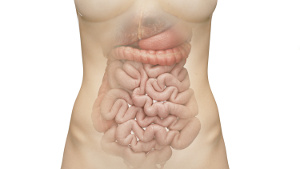 All the different
All the different  The B vitamin
The B vitamin  The rate of eating disturbances among children, teenagers, and adults has increased in the past year. Health authorities typically focus on cultural and psychosocial causes and therapies, but the treatments often drag out and are inadequate. What is equally important is to look at whether the patients lack essential nutrients that are important for the brain, the nervous system, the appetite, and the sense of smell and taste. Clinical research from the past decades has shown that anorexia and bulimia in particular can often be treated with zinc and various other nutrients, while chromium is important for maintaining stable blood sugar. The use of the right supplements combined with different therapy forms may therefore be the right way to obtain permanent results.
The rate of eating disturbances among children, teenagers, and adults has increased in the past year. Health authorities typically focus on cultural and psychosocial causes and therapies, but the treatments often drag out and are inadequate. What is equally important is to look at whether the patients lack essential nutrients that are important for the brain, the nervous system, the appetite, and the sense of smell and taste. Clinical research from the past decades has shown that anorexia and bulimia in particular can often be treated with zinc and various other nutrients, while chromium is important for maintaining stable blood sugar. The use of the right supplements combined with different therapy forms may therefore be the right way to obtain permanent results.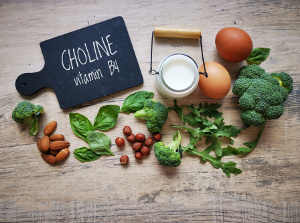
 In ancient times when our ancestors hunted, they consumed every inch of the animal – from one end to another. Organ meat such as the liver, the heart, and the kidneys were delicacies that contained far more essential nutrients than other parts of the animal. In Western countries, we primarily consume muscle meat. In addition, animals often get unnatural fodder with suboptimal nutrient content. This results in deficiencies and an imbalance between amino acids and fatty acids. In the following article, you can read more about organ meats (also known as offal), bone marrow, and bone broth and their high content of essential amino acids,
In ancient times when our ancestors hunted, they consumed every inch of the animal – from one end to another. Organ meat such as the liver, the heart, and the kidneys were delicacies that contained far more essential nutrients than other parts of the animal. In Western countries, we primarily consume muscle meat. In addition, animals often get unnatural fodder with suboptimal nutrient content. This results in deficiencies and an imbalance between amino acids and fatty acids. In the following article, you can read more about organ meats (also known as offal), bone marrow, and bone broth and their high content of essential amino acids,  The majority of sexually active people contract HPV (human papilloma virus), of which there are several types. Normally, the infection goes away by itself but in some cases it becomes chronic. This increases the risk of serious cell changes in the cervix which, in worst case, can result in cervical cancer. An American study has found that having adequate levels of five different antioxidants – albumin plus vitamins A, B2, E, and folic acid – may lower papilloma virus infections that are linked to cervical cancer.
The majority of sexually active people contract HPV (human papilloma virus), of which there are several types. Normally, the infection goes away by itself but in some cases it becomes chronic. This increases the risk of serious cell changes in the cervix which, in worst case, can result in cervical cancer. An American study has found that having adequate levels of five different antioxidants – albumin plus vitamins A, B2, E, and folic acid – may lower papilloma virus infections that are linked to cervical cancer. Having healthy-looking hair means a lot to most people. Hair that splits at the ends, hair loss, and other hair problems may be caused by stress, hormone changes, and numerous other factors. In this article, we will take a closer look at the diet and its impact on hair health, and we will look at available studies of protein, iron, zinc, selenium, silica, B vitamins, vitamin D and vitamin A. The fact is, we need plenty of these nutrients in a form that the body can absorb and utilize. On the other hand, getting too much can do more harm than good, according to an article in Dermatology Practical & Conceptual, in which the author has analyzed the available research.
Having healthy-looking hair means a lot to most people. Hair that splits at the ends, hair loss, and other hair problems may be caused by stress, hormone changes, and numerous other factors. In this article, we will take a closer look at the diet and its impact on hair health, and we will look at available studies of protein, iron, zinc, selenium, silica, B vitamins, vitamin D and vitamin A. The fact is, we need plenty of these nutrients in a form that the body can absorb and utilize. On the other hand, getting too much can do more harm than good, according to an article in Dermatology Practical & Conceptual, in which the author has analyzed the available research. Blood poisoning, also called sepsis, is a life-threatening condition that requires immediate medical attention. A combination of high-dosed, intravenously administered
Blood poisoning, also called sepsis, is a life-threatening condition that requires immediate medical attention. A combination of high-dosed, intravenously administered  All
All 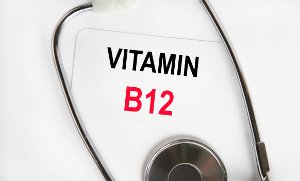

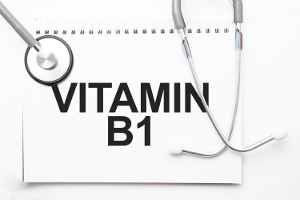 A team of scientists from Århus University Hospital has discovered that high-doses supplementation with
A team of scientists from Århus University Hospital has discovered that high-doses supplementation with 


 Schizophrenia, a brain disease, is an extreme burden to the patient as well as to the patient’s family. However, a large meta-analysis published in Psychological Medicine documents that adjuvant therapy with large doses of
Schizophrenia, a brain disease, is an extreme burden to the patient as well as to the patient’s family. However, a large meta-analysis published in Psychological Medicine documents that adjuvant therapy with large doses of  The number of seniors worldwide is increasing and more and more are affected by Alzheimer’s disease, the leading cause of dementia. We should therefore focus much more on this health problem that comes with an enormous human and socio-economic price tag. According to a new meta-analysis, supplementation with
The number of seniors worldwide is increasing and more and more are affected by Alzheimer’s disease, the leading cause of dementia. We should therefore focus much more on this health problem that comes with an enormous human and socio-economic price tag. According to a new meta-analysis, supplementation with 
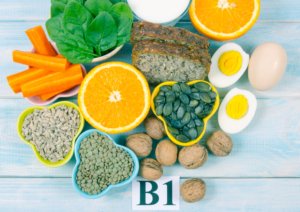 Alcohol is one of the most compromising factors when it comes to public health, and alcohol abuse comes at an enormous cost, both to the individual and to society. A large alcohol consumption contributes as a factor to insidious dementia, but according to a new study from Taiwan, supplementing with
Alcohol is one of the most compromising factors when it comes to public health, and alcohol abuse comes at an enormous cost, both to the individual and to society. A large alcohol consumption contributes as a factor to insidious dementia, but according to a new study from Taiwan, supplementing with 
 It is vital to take good care of your eyes throughout life to maintain good vision. Our eyes need a number of different vitamins, minerals, and fatty acids that are important for cellular function and for protecting against oxidative stress. In this article, you can read more about vitamin A, vitamin C, vitamin E, B vitamins, zinc, selenium, omega-3 fatty acids, and Q10 and their vital role in maintaining healthy vision. We will also look at certain antioxidants that are found in eggs, salmon, spinach, broccoli, red bell pepper, and blueberries.
It is vital to take good care of your eyes throughout life to maintain good vision. Our eyes need a number of different vitamins, minerals, and fatty acids that are important for cellular function and for protecting against oxidative stress. In this article, you can read more about vitamin A, vitamin C, vitamin E, B vitamins, zinc, selenium, omega-3 fatty acids, and Q10 and their vital role in maintaining healthy vision. We will also look at certain antioxidants that are found in eggs, salmon, spinach, broccoli, red bell pepper, and blueberries. Some people prefer to eat raw vegetables in combination with meat or fish or as entirely raw vegan diets. They believe it is healthier and delivers more energy. But the truth is that some vegetables are healthier and provide more antioxidants if you heat them. That’s the case with tomatoes, bell pepper, carrots, spinach, and mushrooms. And remember that raw mushrooms contain toxins that are broken down by cooking.
Some people prefer to eat raw vegetables in combination with meat or fish or as entirely raw vegan diets. They believe it is healthier and delivers more energy. But the truth is that some vegetables are healthier and provide more antioxidants if you heat them. That’s the case with tomatoes, bell pepper, carrots, spinach, and mushrooms. And remember that raw mushrooms contain toxins that are broken down by cooking. "After about one week of taking the Q10 supplement I could feel a huge difference," says 23-year old Alan Piccini, who has been suffering from extreme fatigue and muscle aches ever since he was a child.
"After about one week of taking the Q10 supplement I could feel a huge difference," says 23-year old Alan Piccini, who has been suffering from extreme fatigue and muscle aches ever since he was a child. “Taking capsules with co-enzyme Q10 has freed me of the severe side effects of my cholesterol lowering medicine,” Mrs Franken explains.
“Taking capsules with co-enzyme Q10 has freed me of the severe side effects of my cholesterol lowering medicine,” Mrs Franken explains.